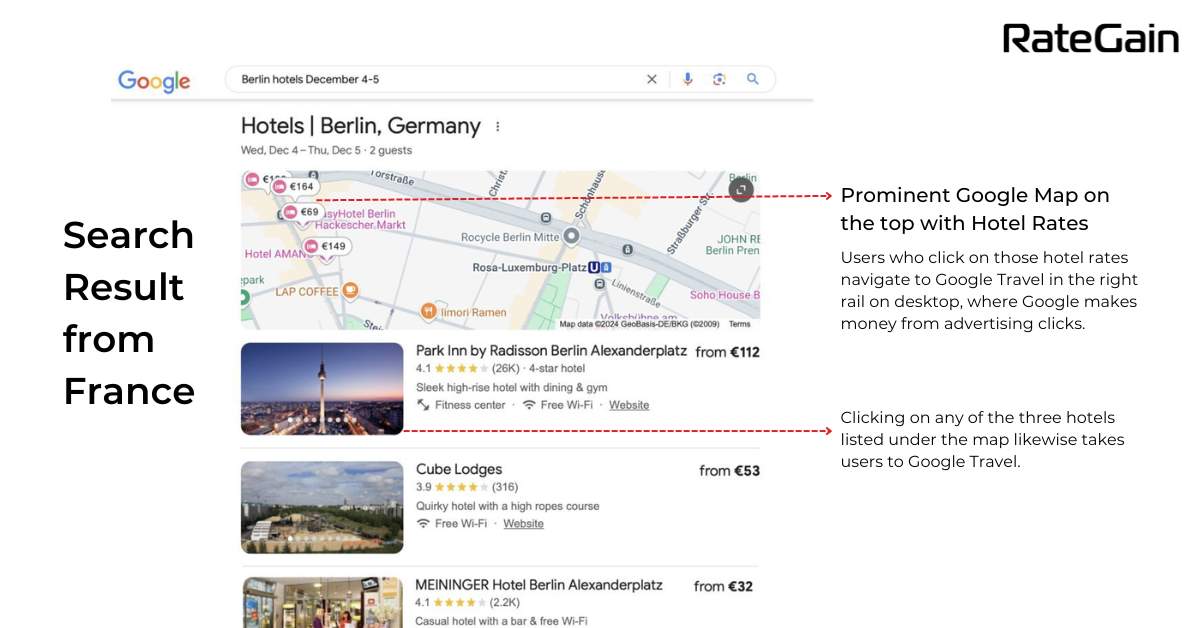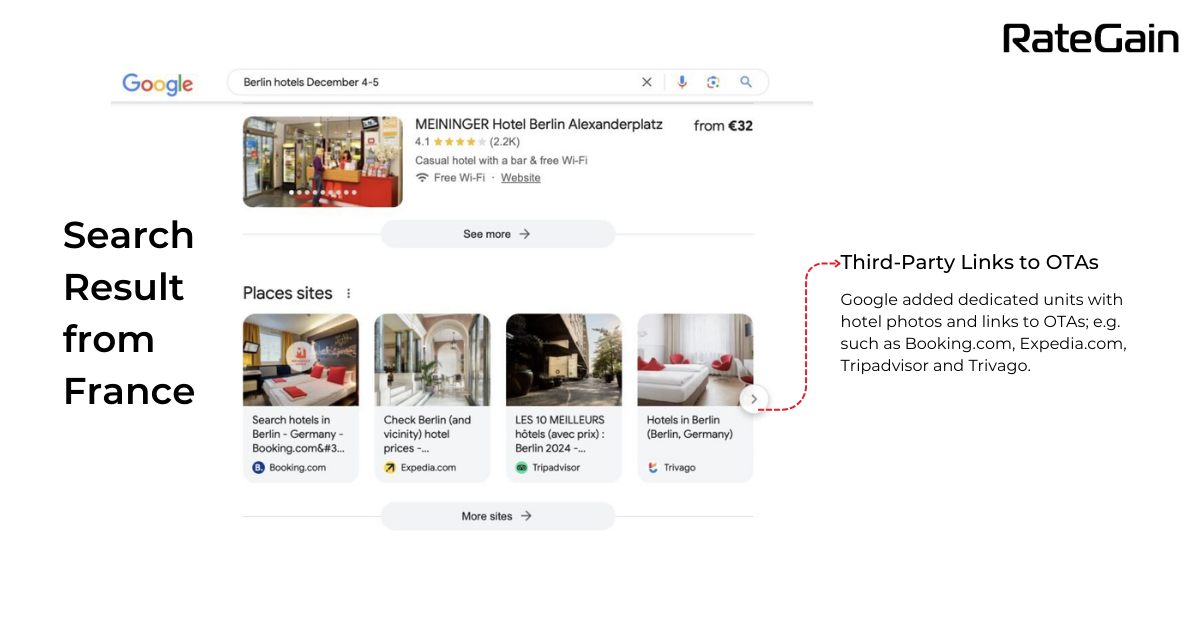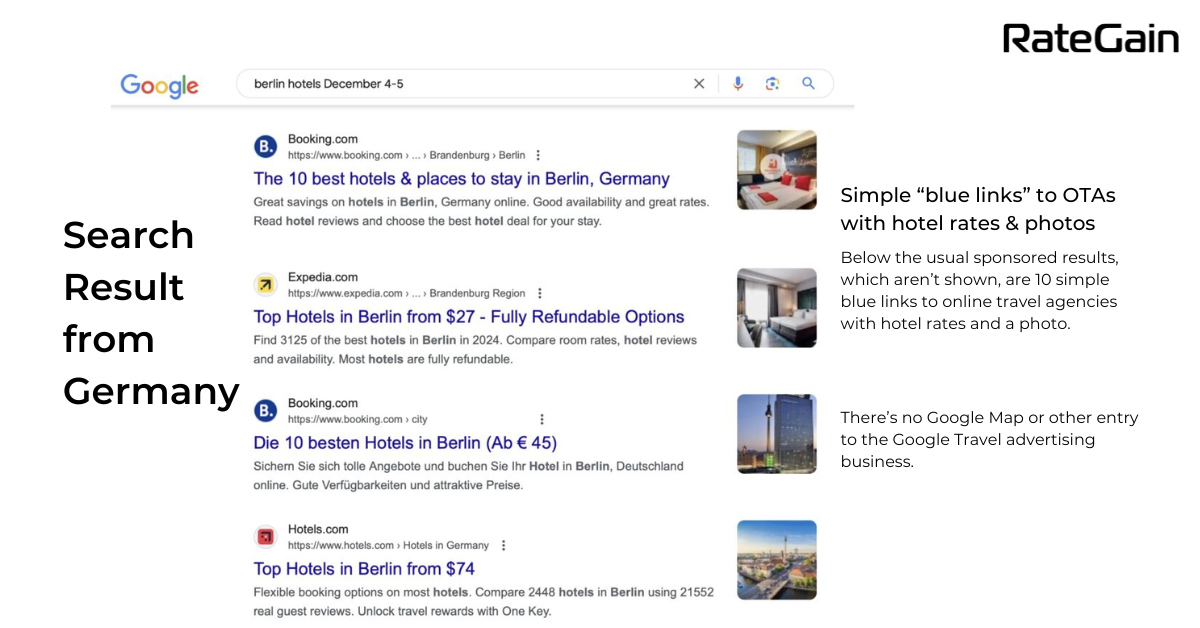
Google has begun testing a stripped-down version of its hotel search feature in Germany, Belgium, and Estonia.
NB: This is an article from RateGain
Subscribe to our weekly newsletter and stay up to date
The experiment replaces detailed search features like maps and hotel listings with a basic “ten blue links” format, offering only direct links to hotel websites and comparison platforms.
This shift stems from compliance with the EU Digital Markets Act (DMA), which aims to curb the dominance of tech giants and foster fair competition. While this is a temporary test, it could signal changes that hotel marketers need to prepare for.
What’s Changing?
In these three countries, Google’s hotel search results will:
- Remove Maps: No more interactive maps to locate properties.
- Remove Hotel Listings: Users won’t see hotel details or pricing within the search results.
- Revert to Basic Links: Results will only display links to hotel websites and comparison sites.
Notably, these results exclude any links to Google Travel.
This stripped-down approach is already being interpreted by some as a strategic move as Google navigates regulatory pressures from the European Commission and parts of the travel industry regarding its compliance with the Digital Markets Act.
Before diving into the dynamics between Google and the European Commission, let’s look at how this test contrasts with regular search results.
How A Regular Search Looks Like
Below is a screenshot showing searches for “Berlin hotels December 4-5” from France and other regions where the test isn’t active.

In the regular format, a Google Map occupies prime real estate at the top, complete with hotel rates. Clicking on these rates directs users to Google Travel, prominently displayed on the desktop’s right-hand rail, where Google monetizes through advertising clicks. Similarly, selecting any hotel listed below the map also leads to Google Travel.
Critics’ Perspective
Critics argue that Google’s dominance in search, coupled with the preferential placement of Google Travel links, creates an uneven playing field, disadvantaging competitors.
Third-Party Platforms Featured
In March 2024, Google introduced new result formats. These included dedicated units featuring hotel photos and links to third-party platforms like Booking.com, Expedia, Tripadvisor, and Trivago. As seen in the second screenshot, these appear at the bottom of the search results.

The Blue-Links Test
The third screenshot highlights the minimalistic design currently being tested in Germany, Belgium, and Estonia. Maps and Google Travel links are absent, replaced by basic links to hotel and comparison websites, returning to the bare-bones “10 blue links” format.

Why Is Google Testing This?
The Digital Markets Act has pressured Google to address competition concerns, particularly from travel aggregators and comparison websites. Over the past year, Google has implemented over 20 updates to its search functionality, some of which have benefited comparison platforms while reducing visibility for direct bookings.




